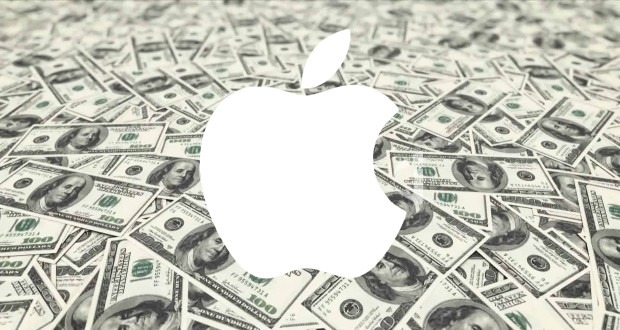As Apple's cash hoard grows to $268 billion, Republican tax plan would make it cheaper to return funds to US
Apple this week revealed that its cash position has grown to $268 billion, with the vast majority of it held overseas to avoid paying domestic taxes. But the prospect of bringing that money stateside could become more appealing if the proposed U.S. tax overhaul comes to pass.
Republican lawmakers have a difficult road ahead of them to pass the most ambitious tax bill in decades, but the Tax Cuts and Jobs Act has numerous advantages for major corporations like Apple. One of the most significant for the iPhone maker would be the U.S. repatriation tax, which is levied on funds held overseas and brought back to America.
Currently, the U.S. government charges 35 percent to repatriate overseas funds. But the GOP's tax proposal would drastically reduce that number to just 12 percent.
Whether that would be enough to incentivize a company like Apple to bring the money back to America remains to be seen.
The Republican plan would also switch the U.S. tax system from worldwide to territorial. That means, going forward, companies would begin to pay local taxes based on where sales occur, and not necessarily be double-penalized for bringing future money to the U.S.
The proposal would also penalize companies that shift income internationally for more favorable tax rates — another change that could greatly affect Apple's own tax strategy.
Apple currently routes international sales through overseas subsidiaries, a policy that has come into question from many international governments, and even led to Chief Executive Tim Cook testifying to Congress in 2013.
Many companies currently pay effective tax rates well below what U.S. law intends.
But the situation is not unique to Apple, and many companies pay effective tax rates well below what U.S. law intends.
For example, Apple rival Google and its parent company of Alphabet have paid an effective tax rate of about 6 percent on non-U.S. profits, thanks to a strategy known as the "double Irish, Dutch sandwich," named for the countries where money is routed through.
Under the Tax Cuts and Jobs Act, U.S. companies like Apple and Google would be discouraged from moving both assets and intellectual property overseas. They would also receive credits for taxes already paid in countries where the money was originally earned. Gavin Ekins of the Tax Foundation provided the following example to Fortune.
The idea is to tax foreign profits above a certain threshold in the U.S., based on return on assets. The key is that only "tangible" assets such as buildings, plants and inventories count in the investment base. Such intangibles as patents and goodwill do not. Say a U.S. multinational generates $10 million in pre-tax income in Ireland on investment, hard assets only, of $100 million. That's a return of 10%. The proposal stipulates that the bogey for "excess profits" is 7% plus inflation, now running at 1% annually. In this case, that would mean 8%, or $8 million. So our company is garnering pre-tax profit that's $2 million over the bogey, or in the excess profits zone.
The multinational would be required to pay our 20% domestic rate— not on all the excess profits, but half. It would also get a credit for 80% of the tax already paid in Ireland; let's say that's its maximum Irish rate of 12.5%. The credit would be 80% of 12.5%, so 10%. The company would pay an excess profits tax of 20% on $1 million (half the total excess profits of $2 million) or $200,000, less a deduction of $100,000 (credit for a portion of the Irish rate already paid on that $100,000), for a total bill of $100,000. So all told, the additional tax would be 5% of the $2 million in pre-tax profit.
Finally, the GOP tax plan would cut the U.S. corporate tax rate from 35 percent to 20 percent.
Critics contend that the GOP tax plan would not work as intended. In particular, the new repatriation rate — which Republicans say could be used to create jobs — may mostly be used to buy back shares, as happened when the U.S. instituted a repatriation tax holiday in 2004.
Regardless, the Republican tax reform proposal would help Apple in a number of ways, which has been encouraging news for investors, who see the company continuing its march toward a $1 trillion market cap.
Cook himself talked about tax reform in an interview with NBC earlier this week, and said that the current repatriation tax policy is not good for the U.S. or its economy.
"This needs to be fixed," Cook said. "In my view, it should have been fixed years ago. But let's get it done now."
Note: Due to the political nature of this story, comments have been disabled.
 Neil Hughes
Neil Hughes













 William Gallagher
William Gallagher
 Mike Wuerthele
Mike Wuerthele
 Christine McKee
Christine McKee

 Malcolm Owen
Malcolm Owen
 Amber Neely
Amber Neely

 Marko Zivkovic
Marko Zivkovic







